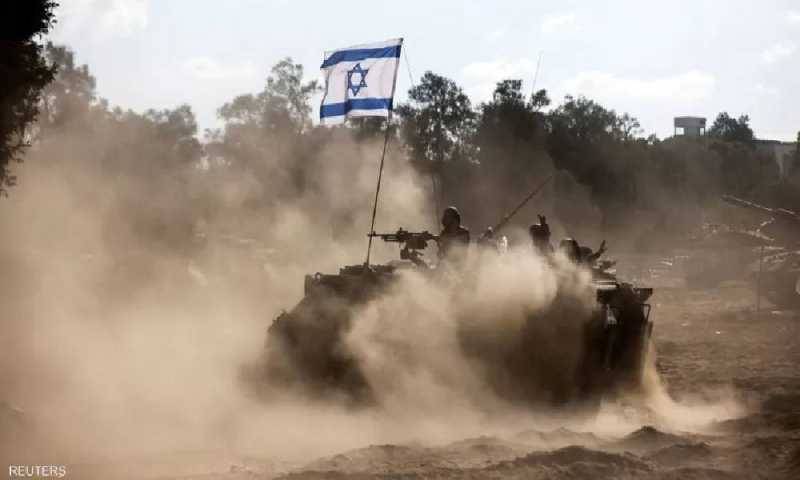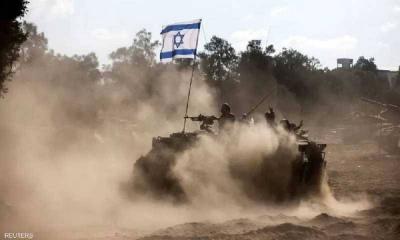The Israeli newspaper "Yedioth Ahronoth" reported that preparations for the Israeli army's entrance into Lebanon are ready and await the political leadership's command. This comes as threats from Tel Aviv continue, warning of an expansion of the war against Hezbollah if diplomatic efforts do not lead to solutions that would allow residents of settlements and border areas to return home. The report noted that "the worst-case scenario is if Hezbollah stops firing."
This announcement follows the recent approval by Israeli Chief of Staff Herzi Halevi and Defense Minister Yoav Gallant of plans concerning developments on the northern front. Journalist and commentator Nahum Barnea stated that the 91st Division of the occupation army, tasked with operations on the northern border, is prepared to enter Lebanon, remarking that "this is the demand from the officers and soldiers." He emphasized that "it is not correct to expect anything else from the military leadership, especially not after three months of waiting for the order to be issued."
Barnea explained that the order for a ground operation in Lebanon is ready but is stuck at the northern command headquarters and the military division, indicating that it is unclear what the political leadership’s decisions will be and how developments and mediation efforts will unfold. He stressed that the Israeli political level is discussing three scenarios on the Lebanese border following the Israeli army's transition to the next phase of the war in Gaza, which will rely on reduced fire density in favor of raids and localized operations based on intelligence information.
He believes that "either the American-French mediation leads to an agreement that would convince northern residents to return to their homes, or Hezbollah stops firing while Israel continues bombing until an agreement is reached, or the escalation continues into a comprehensive war." The worst-case scenario according to the occupation army's forces on the northern border, as reported by the Israeli newspaper, is if Hezbollah stops firing. It stated: "In such a case, the world will see that residents of border areas can return to their homes and the rules of the game that existed until October 6 will resume. The question will then be whether the residents will return. There is significant doubt about that, meaning that the residents of the settlements will not agree to return due to a lack of security."
The newspaper quoted David Azulai, head of the local council in Metulla, saying: "Every night I summarize the number of shells we received throughout the day, then I go to sleep and wake up to the same situation again. Nothing changes. I do not want money from the government; I want a horizon," adding that "the Prime Minister needs to make a decision." Barnea noted the escalation of battles on the northern front, casualties on the Israeli side and among Hezbollah, and the dilemmas faced by settlers and officials in border settlements, as conditions stagnate without change.
He acknowledged the residents of settlements near the Lebanese border who refuse to return home amid the current escalation and referenced the concerns of ministers highlighting the inherent dangers of a war on at least two fronts, particularly with precision missiles and without American support. He added that the state will ultimately overcome this situation; it is strong enough. However, the road is long, and the reality of having a paralyzed government, steeped in sectoral corruption, criminal behaviors, and personal interests, makes the path longer.
In turn, the Israeli site "Walla" revealed that Tel Aviv decided to adopt a different framework for operations during its war against Hezbollah in Lebanon. The site noted in a report that the northern command of the Israeli army launched a new form of confrontations against Hezbollah, mentioning that "within this new framework, joint attacks against the party are carried out." It added, "In the framework of operations, intelligence determines an area of terrorist infrastructure in the heart of one of the villages in southern Lebanon, and the fire command center divides the targets between fighter jets, artillery, tanks, and mortars. The fire opened simultaneously is intended to increase the impact of the strike and is calibrated according to the type of target, which varies between a main headquarters or an ammunition depot and bunkers."




